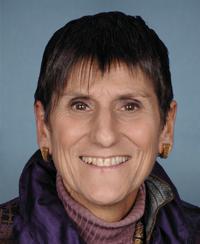WIC Act of 2021
1/25/2024, 11:45 AM
Status of Legislation
Purpose and Summary
Wise Investment in Children Act of 2021 or the WIC Act of 2021
This bill expands eligibility for children to receive benefits under the Special Supplemental Nutrition Program for Women, Infants, and Children (WIC).
Specifically, the bill
- extends eligibility for the program until the period that ends on the earlier of the sixth birthday of a child or when the child enters kindergarten;
- extends the certification period under the program for infants to up to two years, instead of the current one year; and
- increases the certification time under the program for postpartum women to a period of up to two years.
The bill also authorizes the Department of Agriculture to grant a waiver to a state, on request, that waives certification deadline requirements for the eligibility extensions if such state demonstrates there are unusual technological barriers to implementation, operational costs are not affordable within the nutrition services and administration grant of the state, or it is in the best interest of the program.
The WIC Act of 2021 includes provisions to increase funding for the WIC program, expand eligibility criteria to reach more families in need, and enhance the nutritional quality of foods provided through the program. Additionally, the bill seeks to streamline administrative processes to make it easier for eligible individuals to enroll in and receive benefits from WIC.
One key aspect of the WIC Act of 2021 is its focus on addressing disparities in access to healthy foods and nutrition education among low-income populations. The bill includes measures to promote the consumption of fruits, vegetables, whole grains, and other nutritious foods, as well as initiatives to provide culturally appropriate nutrition education and support services. Overall, the WIC Act of 2021 aims to strengthen the WIC program and improve the health and well-being of women, infants, and children in need. By increasing funding, expanding eligibility, and enhancing the nutritional quality of foods provided through the program, this legislation has the potential to make a positive impact on the lives of vulnerable populations across the country.
Comments
Recent Activity
Wise Investment in Children Act of 2021 or the WIC Act of 2021
This bill expands eligibility for children to receive benefits under the Special Supplemental Nutrition Program for Women, Infants, and Children ...
Specifically, the bill
- extends eligibility for the program until the period that ends on the earlier of the sixth birthday of a child or when the child enters kindergarten;
- extends the certification period under the program for infants to up to two years, instead of the current one year; and
- increases the certification time under the program for postpartum women to a period of up to two years.
The bill also authorizes the Department of Agriculture to grant a waiver to a state, on request, that waives certification deadline requirements for the eligibility extensions if such state demonstrates there are unusual technological barriers to implementation, operational costs are not affordable within the nutrition services and administration grant of the state, or it is in the best interest of the program.